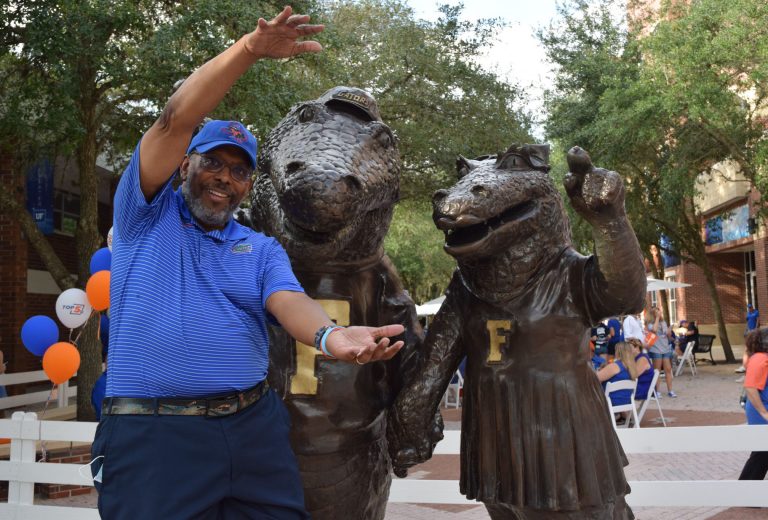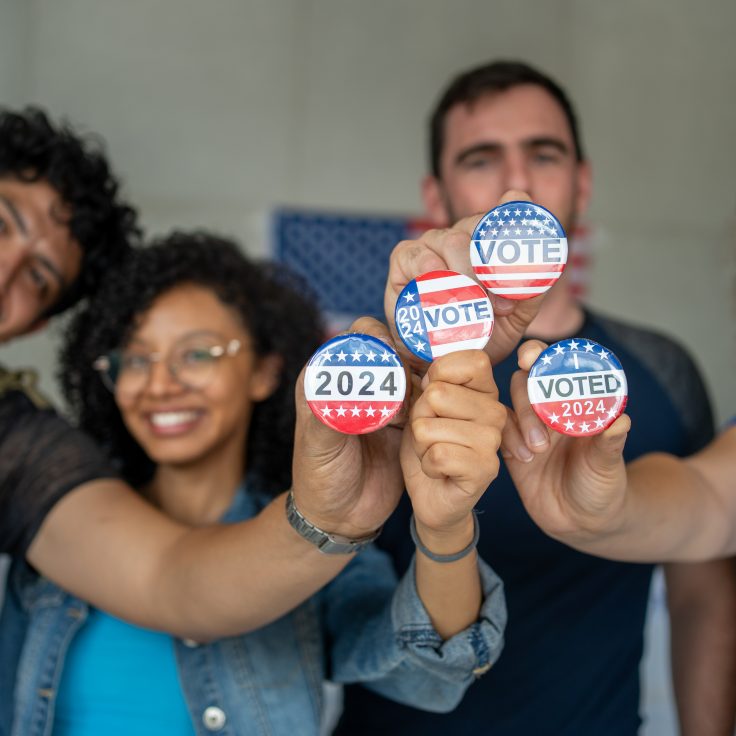
The Bigger Picture
At UF, Leonard Spearman found a broader worldview, lifelong connections and a chance to make a difference
When Leonard Spearman Jr. was still in high school, he had the opportunity to travel to Europe and expand his horizons. During his trip, Spearman encountered different cultures and historical sites that he had only learned about in the pages of books. But it was a year later, when he arrived in Gainesville, that his world truly opened up.
The liberal arts and sciences education Spearman received at the University of Florida expanded his thinking — and propelled him through a multifaceted career that included senior-level positions at Texas Southern University, the Texas Commission on Environmental Quality, the Department of Energy’s Office of Environmental Management and the White House.
“My classes always made me think out of the box,” said Spearman (Psychology ’75), who is now retired and living in Katy, Texas. “Wherever I went in my career — sales, higher education, politics — my success depended on the core value of critical thinking. That’s what Florida gave me.”
Along with the educational grounding he gained at UF, Spearman also found a close-knit network of fellow Gators that he has maintained throughout his life: Spearman is a charter member of UF’s chapter of the historically Black fraternity Kappa Alpha Psi, which will celebrate its 50th anniversary next year.
Spearman has since done his part to help ensure that Gators continue to have just as rewarding an experience, both before and after they graduate. Long a vocal booster of UF, he served a term as president of the UF Alumni Association from 2006-07. His Gator pride also permeated through his own household: Two of his four children graduated from the UF College of Liberal Arts and Sciences, majoring in philosophy and classical civilization.

Spearman’s positive experiences have always been paired with an awareness of ways the university can make the Black members of its community feel more welcome. Just last year, Spearman wrote an email to UF President Kent Fuchs about the racist history of the phrase “Gator Bait.” His note played a role in the university’s decision to do away with the same-named chant at UF sporting events.
Wherever I went in my career — sales, higher education, politics — my success depended on the core value of critical thinking. That’s what Florida gave me.
He has known that progress was possible, though, since his first days at UF. Spearman arrived in 1971, just months after “Black Thursday,” when protesters demanding more support for Black students and faculty occupied the office of University President Stephen O’Connell. Sixty-six protesters were arrested, and afterward 123 Black students — over one-third of the Black student population — withdrew from the university. The incoming class the following year saw the biggest influx of Black students the university had ever had.
“I wasn’t there for the sit-in, but I’m a product of the sit-in,” Spearman said.
During his term as president of the alumni association, Spearman embraced the opportunity to serve as an example of a Black alumnus who has been a leader in the school’s continued growth — which he hopes helped to encourage younger Black alumni to get involved. He savors the feeling of walking to Emerson Alumni Hall and seeing his name among the many bricks featuring the names of alumni, a testament to his role in the university’s story.
Spearman is also excited about recent developments on campus recognizing the Black community, including the dedication of the National Pan-Hellenic Council Garden in the Reitz Union’s North Lawn. The garden is a tribute to the nine historically Black fraternities and sororities on campus, including Spearman’s own Kappa Alpha Psi.
UF, Spearman said, is a place he has always been able to call home. His deep connection to his alma mater is no surprise — education has been a long-cherished value in his family. Spearman’s great-grandfather built a schoolhouse for his children after he became free from slavery, Spearman said. His grandfather was a chaplain at FAMU, and his grandmothers both taught school in Florida. Leonard H.O. Spearman Sr., Spearman’s late father and an ambassador to two countries under two presidents, also served as president of Texas Southern University and the executive director of the White House Initiative on Historically Black Colleges and Universities. The legacy has continued: Spearman’s youngest daughter is a teacher in Texas.
“Education has always been in the blood,” Spearman said.
When Spearman’s son chose to study philosophy at UF, Spearman imparted the value he would find in the liberal arts and sciences.
“I preached to him that you have to learn to see the bigger picture,” he said.“You have to know more than just your own small universe.”
This story appears in the fall 2021 issue of Ytori magazine. Read more stories from the issue.


